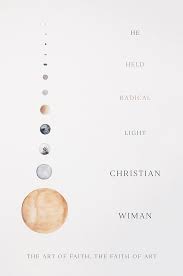
The old axiom has it that writers can cheat death if their words live on. I’m not terribly impressed with the formula because my words don’t experience the five senses as well as I do. If they live on, a lot of good that does me, in other words. And yes, you might say words (and plots and characters and Muses) have a mind of their own, but that’s like arguing that a computer has a mind of its own, too. It sounds good, but it’s a pleasant and popular fallacy.
When I first read Jack Gilbert’s Collected Poems, it was on a train (I always remember books read on trains, especially) and, as you might expect, I felt like I knew the guy quite well. Immortality, right? Cheated death (asterisk, wink, fingers crossed), right? But poor Jack doesn’t know any better. He died in 2012 after 87 good years.
Anyway, back to the book. It was a loan from the Worcester Library and contained a sacrilege. When I reached page 350 (of 384) with supplies and water running low, I noticed a page cleanly ripped out of the book.
Who does such things? What kind of person? Going to the table of contents, I find the answer. The missing poem, starting on the now-ghost page of 351, is called “The Answer.” So someone found an answer, all right, but apparently couldn’t memorize it, so they stole it, and the devil take the rest of us, apparently. The rest of us who are left with “The Question.”
Of course, curiosity piqued, I had to look the missing poem up on the Internet. Why couldn’t the mad ripper have done the same? Is printer toner that expensive? Anyway, here’s what I (and all readers of this library’s book) was missing:
“The Answer” by Jack Gilbert
Is the clarity, the simplicity, an arriving
or an emptying out? If the heart persists
in waiting, does it begin to lessen?
If we are always good, does God lose track
of us? When I wake at night, there is
something important there. Like the humming
of giant turbines in the high-ceilinged stations
in the slums. There is a silence in me,
absolute and inconvenient. I am haunted
by the day I walked through the Greek village
where everyone was asleep and somebody began
playing Chopin, slowly, faintly, inside
the upper floor of a plain white stone house.
Now, where was I? Ah, yes. Immortal Jack. When people say, “You don’t know Jack,” they’re wrong. I got to know his eternal soul well. He likes one-stanza poems. A lot. Mostly on one page, though occasionally on two. None as far as three. So if long poems drive you to distraction because your attention span is shorter than a Dachshund, check out Jack.
Frequently, Jack discusses past loves — wives divorced (Linda Gregg… a poet, too) and wives died (Michiko). He also is a well-traveled guy. Like Virgil, his ghost gave me more than one tour of towns and villages in Greece and Italy and Japan and New England. Also big cities like San Francisco and New York City. Pittsburgh as well. Jack is a Pittsburgh boy, after all.
Like the ancient Chinese and Japanese, he’s heavily invested in nature. And women. Fixated on nipples, too — a word that makes frequent cameos in his work. And life and death, anticipating his immortality, as in the final poem in the book:
“Convalescing” by Jack Gilbert
I spend the days deciding
on a commemorative poem.
Not, luckily, an epitaph.
A quiet poem
to establish the fact of me.
As one of the incidental faces
in those stone processions.
Carefully done.
Not claiming that I was
at any of the great victories.
But that I volunteered.
Jack doesn’t think he has much of a sense of humor, but he’s being modest. The man who totally lacks a sense of humor is rare, indeed (though he sometimes gets elected to the highest public office in the land). Some of the poems have a bemused tone, the kind of thing you hear in any work where writers are trying to figure life out (a poetic pastime). He also writes about writing on more than one occasion. For those who try to write poetry, there’s this “insider” poem:
“Doing Poetry” by Jack Gilbert
Poem, you sonofabitch, it’s bad enough
that I embarrass myself working so hard
to get it right even a little,
and that little grudging and awkward.
But it’s afterwards I resent, when
the sweet sure should hold me like
a trout in the bright summer stream.
There should be at least briefly
access to your glamour and tenderness.
But there’s always this same old
dissatisfaction instead.
For true immortality, some might say, you need to reach the level of the Bard and such. And remember, some writers seem shoe-ins for immortality when the moods of Fate turn against them. Famous today, not so much tomorrow. T. S. Eliot is famous, but how much is he read anymore? Longfellow was a Victorian giant, but try to find him now.
On a local level, Jack Gilbert is now famous to me. With this many poems read in this fast a succession, you’re bound to find quirks and holes (e.g. if poems are supposed to be “cut to the bone,” then many of Jack’s dodged the butcher’s poetic blade). But overall, it was a man that began to take shape beside me as I read on the train and, later, on the patio under the spring-break sun. It was a life revisited in a world where very few remain.
Immortal? Cheating death? Of a sort. In a way. But it’s the best a writer can do, so let’s celebrate the lie and leave philosophical arguments for the academics.

